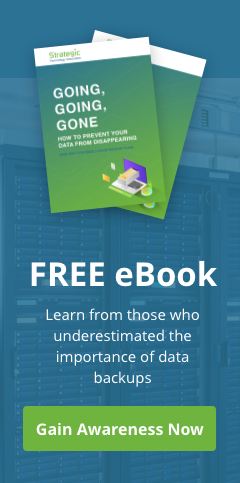In 2021, the United States experienced one of the most active storm seasons on record, upsetting businesses already dealing with a pandemic. For companies without a good disaster recovery plan, the consequences were devastating. This is why your business should have a hurricane disaster recovery plan.
How to protect your business from hurricanes
How to secure your data using File History in Windows 10

Whether you use a Windows 10 laptop or desktop for work or personal use, you’ll realize that it can quickly accumulate a large amount of data. Hardware failure, cyberattacks, and natural disasters can put this data at risk of being lost forever. Backing up your data regularly is the best way to prevent data loss, and here’s how you can do it.
Ensuring business continuity with cloud technology
7 Steps to making your data hurricane-proof

Hurricanes are a common occurrence in many parts of the United States. Not only do they destroy property and endanger lives, but they can also disrupt your business’s operations. In this blog, we offer tips on how you can ensure fast access to your data following a disaster and immediately get back to business.
How to back up your files using Windows 10

Business owners are becoming more aware of the damaging effects of data loss. Companies now realize that without safe and reliable data backup, important business information can fall into the wrong hands or be lost forever. Fortunately, Windows 10 offers easy-to-use tools like File History and OneDrive.
Taking business continuity to the cloud
Backup challenges in data virtualization

Despite having many advantages over conventional data storage, data virtualization still needs backup, an essential security measure to protect data. Here are some common challenges you need to overcome to successfully back up your virtualized data.
Data virtualization involves taking all enterprise data stored in different local computers or systems, and moving them to a virtual server for centralized management and for on-demand delivery to business users.
Quick Guide to Virtualization as a DR plan

Although many business owners think that Virtualization and Disaster Recovery (DR) are two separate services, the former can actually be used as a legitimate solution to the latter. Here’s how it works, along with some pointers to keep in mind should you choose virtualization as your disaster recovery plan.
Do you speak “Data”?

Quick, what’s the most important thing about your business’s precious data? Besides knowing how to back it up properly and protect it from catastrophic loss, how about understanding all the lingo used to describe it? The term “big data” - in reference to large, complex data sets - is a well-known buzzword these days, but a slew of new “data” terms are in style now, too.




